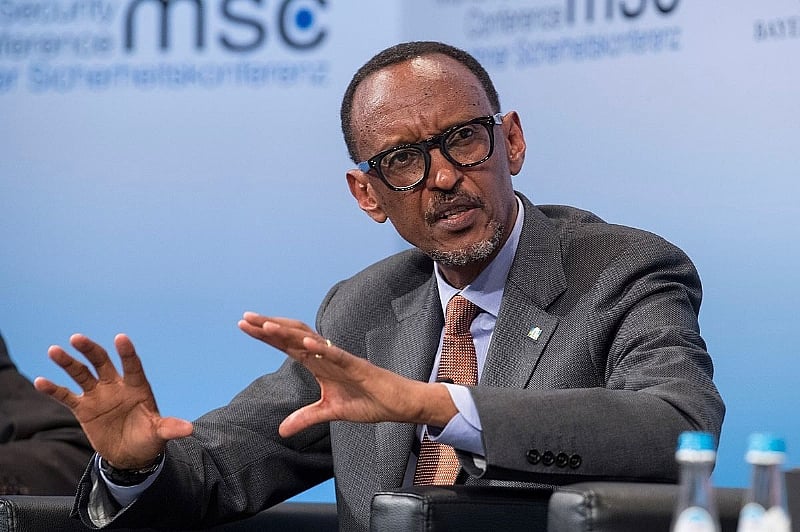President Paul Kagame of Rwanda has delivered a pointed critique of Africa’s developmental trajectory, attributing the continent’s sluggish progress to a confluence of self-inflicted impediments. Chief among these, he argues, are excessive bureaucracy and a debilitating lack of collaboration among African leaders and institutions. Kagame contends that these systemic inefficiencies act as significant roadblocks, hindering the continent from achieving its full potential and leaving it lagging far behind where it should be. He emphasized that incremental progress should not be a source of complacency but rather a stark reminder of the vast untapped potential that remains dormant due to these internal obstacles. His remarks, delivered at the CEO Forum in Abidjan, Ivory Coast, underscore a growing frustration with the slow pace of development and a call for a fundamental shift in approach.
Kagame’s critique extends beyond bureaucratic hurdles to encompass Africa’s unsustainable economic model. He laments the continent’s overreliance on exporting raw materials and human capital, only to re-import finished goods and foreign expertise at a premium. This cyclical pattern, he argues, perpetuates a dependence on external actors and deprives Africa of the value addition and economic diversification that would result from processing its own resources and leveraging its own talent pool. The president posed a rhetorical question that encapsulates the core of his argument: “Why don’t we retain this talent and get them to do what we need ourselves?” This pointed query highlights the missed opportunity for economic growth and self-sufficiency that arises from this unsustainable practice.
Furthermore, President Kagame decried the prevailing mentality of dependence on external aid, which he believes has eroded the continent’s self-reliance and hindered its ability to take ownership of its development agenda. He criticized the pervasive belief that external actors will perpetually shoulder the financial burden of Africa’s development, arguing that this mindset undermines efforts to mobilize internal resources and cultivate a culture of self-sufficiency. This dependence on external assistance, he asserts, has created a sense of complacency and diminished the urgency to address the continent’s challenges through its own means.
Kagame’s pronouncements reflect a broader call for a paradigm shift in Africa’s development approach. He advocates for a move away from dependence on external actors and towards a model of self-reliance, driven by internal resources, local expertise, and inter-continental collaboration. This, he argues, requires a dismantling of the bureaucratic barriers that stifle innovation and hinder efficient resource allocation. He further emphasizes the importance of nurturing and retaining African talent, fostering innovation within the continent, and promoting value addition through the processing of raw materials into finished goods. This shift, according to Kagame, is essential for achieving sustainable and equitable development.
The Rwandan president’s message underscores the urgency of fostering a collaborative spirit among African nations. He emphasizes the need for greater cooperation among leaders, institutions, and the private sector to address the continent’s shared challenges and unlock its vast potential. This collaborative approach, he contends, is crucial for creating a conducive environment for investment, innovation, and economic growth. By working together, African nations can leverage their collective strengths, share best practices, and build a more prosperous future for all.
In essence, President Kagame’s address serves as a wake-up call for Africa to take ownership of its development trajectory. He challenges the continent to move beyond the rhetoric of progress and confront the systemic inefficiencies and ingrained mindsets that impede its growth. His call for less bureaucracy, greater collaboration, and a shift towards self-reliance encapsulates a vision for an Africa that is empowered to chart its own course towards sustainable development and prosperity. He believes that the continent possesses the necessary resources and talent to achieve its aspirations, but a fundamental change in approach is imperative to unlock its true potential.


